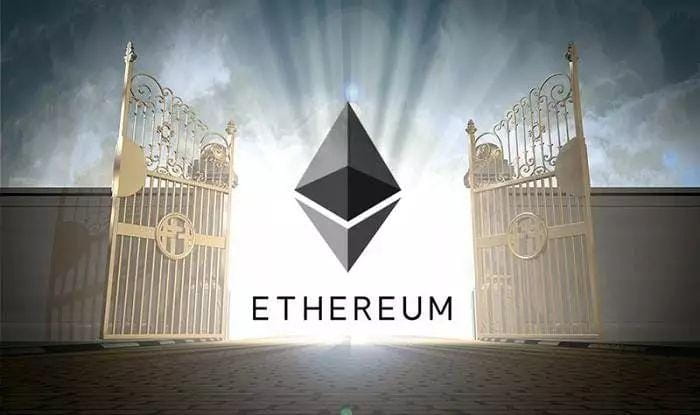How did this genius, known as "V God" in the Chinese cryptocurrency circle, transform from a rebellious teenager addicted to online games to a leader in the global blockchain revolution? And what kind of wealth legend did he and China's "nobles" write together?
Vitalik Buterin, a Russian teenager born in 1994, rewrote the history of blockchain with a book (Ethereum White Paper) at the age of 19.
He started programming at the age of 4 and wrote games in C++ at the age of 12, but he was addicted to World of Warcraft at the age of 13 and became an "Internet addict". It was not until Blizzard deleted the skills of his favorite character that he gave up the game in anger and deeply realized the "control of centralized power over individuals" - this experience became the original motivation for his pursuit of the concept of "decentralization" in the future. In 2011, when he was 17 years old, he first came into contact with Bitcoin from his father. He then wrote articles for 5 Bitcoins (about 4 US dollars at the time) per article, and gradually became an "opinion leader" in the Bitcoin community. But he was dissatisfied with the limitations of Bitcoin: "It's like a mobile phone that can only send text messages, and what we need is a smartphone."
Dropping out of school at 19 to write a white paper: a "juvenile fantasy" that subverts Bitcoin In 2013, 19-year-old Vitalik dropped out of the University of Waterloo in Canada and traveled around the world with his reflections on Bitcoin. After communicating with developers in Israel, San Francisco and other places, he came up with a crazy idea: to build a programmable blockchain platform that allows anyone to develop applications on it. In just a few months, he completed (the Ethereum white paper) and proposed the concept of "smart contracts" - which is equivalent to installing an "operating system" for the blockchain. He sent the white paper to 15 friends in a group, which resulted in a nuclear explosion in the community. An early participant recalled: "I trembled all over after reading it, and I knew this was the future."
Chinese capital "helps in time of need": Wanxiang Group bets 500,000 US dollars and gets a 3,000-fold return ?Ethereum did not have a smooth start. During the ICO in 2014, although it raised 18 million US dollars, the market's cold reception caused the price of Ethereum to be below 1 US dollar for a long time, and the team was on the verge of disbanding. At the critical moment, Chinese capital took action: ?Wanxiang Group invested 500,000 US dollars when Ethereum was at its lowest point. Based on the 0.3 US dollars/ETH at the time, this investment has now returned more than 3,000 times; ?Peking University talent Lu Xujun (founder of Gongzhengtong) "all in" Bitcoin for Ethereum during the ICO stage, becoming one of the earliest Chinese investors to bet on Vitalik Buterin. ?Vitalik Buterin has visited China many times and said that "Chinese developers understand blockchain far better than Westerners." Chinese miners, exchanges and capital have also become key drivers of the rise of the Ethereum ecosystem.
DAO attack and "hard fork" controversy: How does a teenager deal with the crisis of a trillion-dollar empire? In 2016, Ethereum encountered the biggest crisis in its history - the decentralized organization DAO was hacked and ETH worth $60 million was stolen.

The community split into two factions: one insisted that "code is law", and the other advocated rolling back the transaction. The 22-year-old Vitalik Buterin chose "hard fork" to save funds against all odds. Although this decision was criticized for "violating the principle of blockchain immutability", it preserved market confidence. The split "Ethereum Classic" (ETC) was gradually marginalized, while the market value of ETH soared to $100 billion.
Ethereum’s “Chinese Gene”: Deep Binding from Technology to Capital Today, Ethereum and China have long been inseparable: On the technical level, Chinese developers contributed about 30% of Ethereum code, and Shanghai and Hangzhou have become gathering places for global blockchain developers; On the ecological level, Chinese exchanges such as Huobi and OKEx were the first to launch ETH, pushing it to become the “king of altcoins”; On the capital level, institutions such as Wanxiang and Distributed Capital continue to increase their investment in the Ethereum ecosystem, and even the meeting between Putin and Vitalik Buterin was facilitated by the Chinese side.
Lao Zhao has something to say From the "abandoned child" of World of Warcraft to the "creator" of blockchain, Vitalik's story is full of idealistic romance, but also mixed with the cruelty of capital game. In this revolution, China is not only an early "Bo Le", but also one of the biggest winners. As he said: "Blockchain is not to subvert the existing system, but to create a new world." When the underlying code of this "new world" is engraved with Chinese imprints, it may be the best gift given by the times to the pioneers. Finally, blockchain and currency circles have given people too many opportunities. Wu Jihan, Sun Yuchen, Zhao Changpeng and others have all made great achievements. Who will be the next Vitalik?
Follow us and give us a thumbs up! #ETHETFS #加密市场回调 #美国加征关税 #美国加征关税 #美国4月CPI数据回落